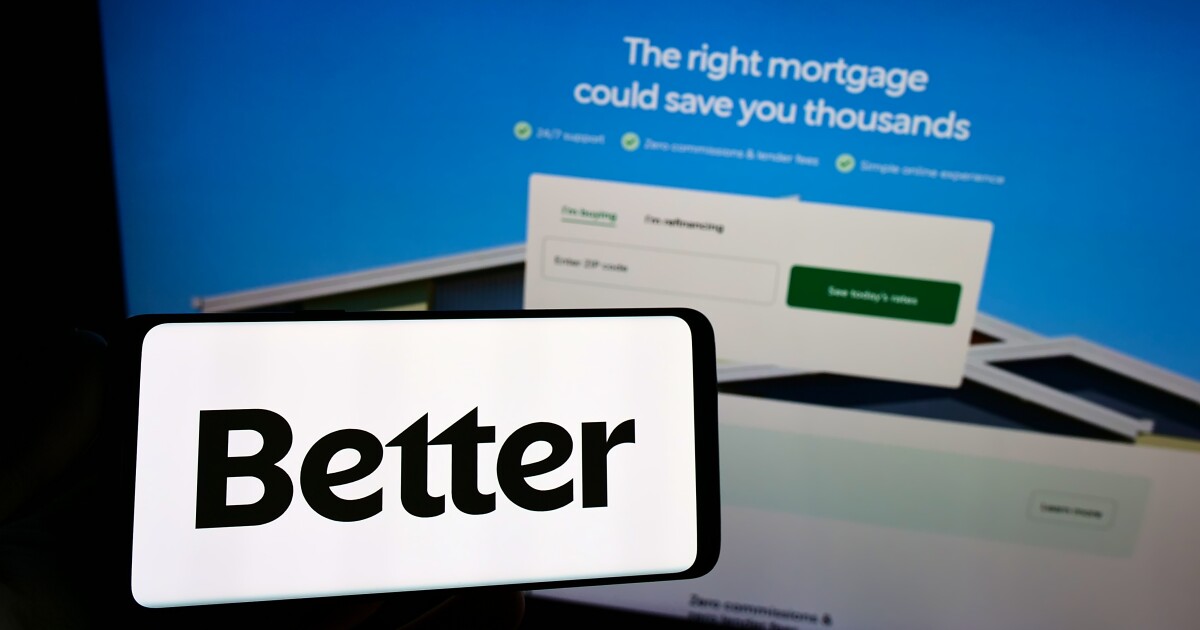
Better Home & Finance executives Tuesday explained why they expect their origination business to be an industry disruptor despite suffering major losses and significant downsizing.
The digital lender lost $340 million in the third quarter, with a significant portion of that loss stemming from a mark-to-market derivative related to its August merger to go public. It funded $731 million across 2,067 loans during the period, a 36% volume decline compared to the same last year.
The company, which endured one of the steepest declines in revenue among its peers in the aftermath of the refinance boom, is nonetheless set up for success, company leaders suggested in the firm's first earnings conference call. Better said it has removed $1 billion in annualized expenses so far this year, and should be well off with its recent $565 million capital infusion.
"We have enough runway for operations over the next several years and have no plans or current needs to raise any capital," said Kevin Ryan, chief financial officer.
Of the lender's recent net loss, $237.6 million came from a change in fair value of a bifurcated derivative, a mark-to-market asset tied to pre-closing bridge notes. Its third quarter result exceeded a $226.6 million net loss at the same time last year, and a $45.5 million deficit to end the prior reporting period. The lender's gain-on-sale margin over the third quarter was 1.94%, also a dip from the 2.21% mark last year.
Better's third quarter report touted its Tinman loan origination system's prowess over its competitors. The lender's employees closed on average 9.6 loans per month in the third quarter it said, compared to 3.3 for the industry in the fourth quarter, according to the most recent industry data. It also touted a post-closing defect rate of 0.94 at the end of last year, an edge over recent data published by ACES Quality Management.
The lender will lean on its recent product launches, One Day Mortgage and Mortgage-as-a-Service, executives said. The One Day Mortgage product, which moves an applicant from lock to commitment letter in an average of eight hours, made up 70% of Better's direct-to-consumer business in the recent period. Just under half of Better's funded loan volume came from its origination outsourcing with Ally Financial, the lender said.
Garg, in discussing the firm's real estate agent partnerships, also hinted at a pilot program allowing real estate agents to become loan officers. That move echoes some of the predictions by experts regarding the fallout of a recent real estate agent commissions trial.
Ryan hinted at more details around a path to profitability at a possible investor day early next year. Executives meanwhile suggested they could see over $100 million more in revenue if they capture just 1% of the refi share in the next two years with its current GOS margin.
Better meanwhile acknowledged a lackluster customer conversion rate, with over 18,500 applications a month but less than 1,000 such loans funded.
"We think that we can eventually get those conversion rates up to be 3x, 5x better than wherever they are today," said Garg. "And that will substantially change the economics of our purchase."
The firm's stock, which fell flat on its August debut, remained relatively flat following the earnings, sitting at $0.45 per share as of Tuesday afternoon.



